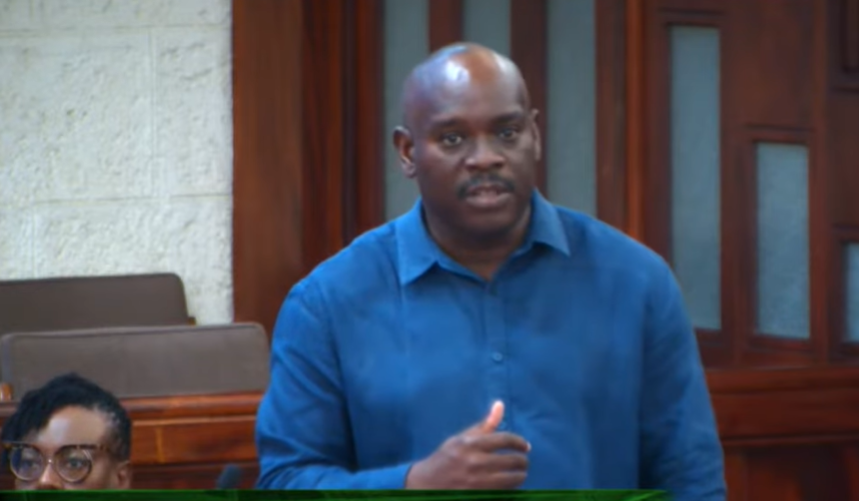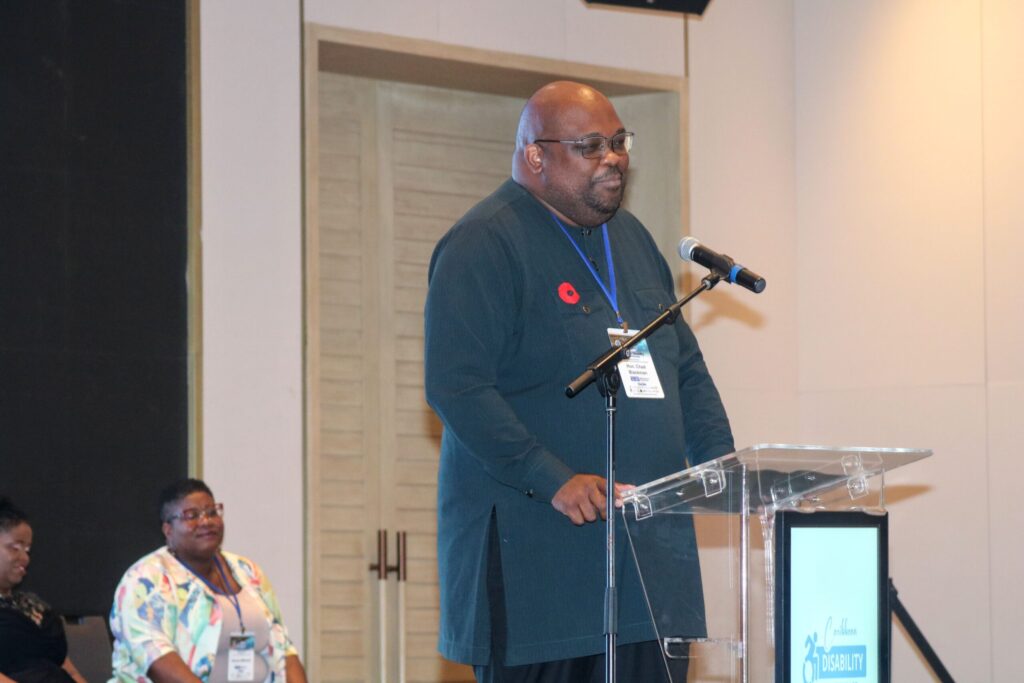Barbados is moving to strengthen its financial resilience with a full membership in the Development Bank of Latin America and the Caribbean (CAF), positioning itself to secure investment and climate financing as traditional international aid flows decline, according to Foreign Minister Kerrie Symmonds.
The Development Bank of Latin America and the Caribbean Bill went before the House of Assembly on Tuesday to ratify an upgrade of the country’s membership, which Symmonds described as a “critical and indispensable” way to “future‑proof” the island from climatic and other shocks.
He said: “A couple of weeks ago, the White House sent out a notification saying to Barbados and to others in the developing world that the partnerships that we thought we could have with the United States‑funded agencies are no longer going to exist.
“And so for example, United States Aid (USAID) says the $400 million that you thought was going to be available to have a Blue/Green Bank that will enable us to be able to finance a lot of the resilience that we need for shoreline protection, the resilience we want to have for our schools, so schoolchildren can be in better condition, the resilience in our public health service, the resilience in so many areas of our economy. Don’t mind that you want that resilience in your agriculture sector, the White House is telling you: ‘We cutting that $400 million because it is climate‑related, and that is not a core mission any longer.’
“It may not be a core mission for them, but it is an existential issue for us as it turns the ability for Barbadians, man, woman and child, to live or die, to thrive or die in this society. That is what this is about.”
Symmonds further outlined that a similar situation has developed with the World Bank regarding energy.
“The World Bank has now been indicating to us since last month that they are compelled, again by the United States government, to take an all‑encompassing approach to energy financing, and that means that burning fossil fuels must continue, as far as the United States government is concerned. Coal should burn, oil should be pumped, and utilised and that the renewable energy effort is not a core mission of the IMF. It is not a core mission of the World Bank, and that could put one side.
“So our whole development trajectory is being compromised by the largest power on the planet, which has a philosophical outlook that does not align with our developmental trajectory and developmental interests and the concept we have of how we can finance our well‑being. So the World Bank alliance that we thought we had with the Catastrophe Deferred Drawdown, where we said we can pause debt obligations to meet the financial commitments arising out of an unanticipated climate shock or an unanticipated public health crisis, that is being swept aside before our very eyes, and then we are told that on top of it, that the bank is being now told that they have to remove their 45 per cent climate co‑benefit targets with countries like ours.”
With such shifting priorities, the foreign minister said, the CAF Bill would help carve out space where the island could build out its infrastructure and resilience across both the public and private sectors.
“And so therefore it will cost us some money, but we will increase the shared interest in the CAF, and through that shared interest, we can access as much as $18 billion in financing for development purposes. We, meaning the private sector in Barbados as well as the public sector in Barbados. We meaning the business people in Barbados who have an interest in doing resilient investment and sustainability investment, and the Government of Barbados, which is determined that we must rebuild this economy and society in a more resilient and sustainable manner in order to confront the damage and the crisis of our environment, which we didn’t cause.”
(JB)
The post Barbados’ CAF membership amid declining global aid – Symmonds appeared first on Barbados Today.


